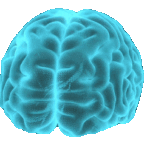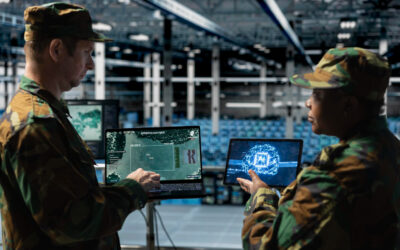THE RISE OF ARTIFICIAL INTELLIGENCE. CAN AUTOMATION REDEFINE THE LABOR MARKET WITHOUT LEAVING ANYONE BEHIND?
Experts believe that AI will partially automate the affected jobs while encouraging the emergence of new professional profiles. At the same time, challenges such as professional reskilling or ethical issues will need to be addressed.
ALMOST ALL PROFESSIONAL ACTIVITIES HAVE PROCESSES THAT CAN BE AUTOMATED TO ACHIEVE MORE EFFICIENCY. While the use of technology is nothing new in any sector, there is an increasing generalization of the use of artificial intelligence (AI) to save time and costs, while increasing productivity.
Recently, with the rise of generative AI — such as ChatGPT — this trend is affecting both intellectual jobs and those that require more physical effort. In light of this new reality in the work environment, voices for and against automation are already emerging due to its impact on the professional market. At the same time, reflections on how to train workers or the ethical implications of this coexistence between humans and intelligent machines are gaining ground in the public debate.
The relevance of this historical moment demands continuous exchange of credible opinions, which is why, with this premise in mind, El Confidencial organized a roundtable titled “The Future of Work: Automation for More and Better Jobs.” The expert panel included representatives from companies affected by automation and the use of AI, technology companies, and academics specializing in the subject. The participants were Iñaki Ugarte, General Director of Operations at Primera Milla, Amazon Spain; Belén Martín, Vice President of Hybrid Cloud at IBM Consulting; Manuel Espiñeira, Director of Digital Business Technologies Solutions at Minsait, an Indra company; and Ignacio López Sánchez, Professor of Business Organization at the Complutense University of Madrid (UCM).
To contextualize and understand the origins of the automation boom, Iñaki Ugarte listed “three factors” that have accelerated its penetration: “New technologies alongside the digital era and big data, the Millennial and Generation Z workers as digital natives or migrants, and the international context, which, after the pandemic and the complex geopolitical scenario, is forcing industry relocation.” Regarding whether automation will eliminate jobs, he had a clear answer: “Far from there being less work for people, new jobs are actually being created.”
The logical question is what types of jobs are being created with the advent of AI in the workplace. In this regard, Belén Martín provided examples: “Just in the last three months, two profiles have emerged that are revolutionizing everything. One of them is the prompt engineer, people specialized in asking questions to artificial intelligences — they function as a sort of instructor — and whose Spanish translation could be ‘ingeniero de peticiones’. The other is the ethical algorithm trainer, and their role is to prevent social biases.” The Vice President of Hybrid Cloud at IBM Consulting clarified that “although these profiles seem related only to STEM disciplines — science, technology, engineering, and mathematics — there are also profiles in the humanities such as linguists or philosophers, which opens up an unlimited range of possibilities.”
“In the last three months, profiles like ‘prompt engineer’ and ethical algorithm trainer have appeared,” Belén Martín (IBM)
From Minsait, an Indra subsidiary, they consider that “automation will be partial in most jobs,” as explained by their spokesperson during the roundtable. “Approximately 60% of jobs have the potential for partial automation of their tasks, but only 7% of them can actually be automated in more than 50% of their processes,” clarified Manuel Espiñeira, who then recalled that “in the 1950s, there was a catalog in the U.S. of jobs that were expected to disappear with the automation of the time. The list included 270 jobs, and yet only the elevator operator profession disappeared.” To elaborate further on his future forecast, he specified that “the key is the quality of the information analysis a professional can do with AI tools, as it allows them to make high-level decisions, such as a better diagnosis in the case of a doctor. However, this shows that doctors will continue to exist as a profession,” he assured.
This view was shared by Ignacio López Sánchez. For the Professor of Business Organization at the Complutense University of Madrid, “there are certain jobs with a relatively high percentage of repetitive tasks, and therefore automatable, but others not so much. This will force companies to reorganize and define new profiles that, in some cases, will have AI as copilots,” he emphasized. Furthermore, the professor raised a challenge picked up by the rest of the participants in the discussion: “Will we be able to give workers the proper training to perform these new tasks that are coming? And more importantly: What will we do with the people whose jobs will disappear? Will they be able to be retrained for new profiles?” he asked.
Reskilling, educational flexibility, and ethical oversight:
From Iñaki Ugarte’s perspective, “every time a new disruptive technology appears, the same questions arise, and the answer must be clear: no one should be left behind,” he stressed. “But the issue of reskilling has a handicap — the educational system, as it lacks the agility to adapt to new needs,” he continued. Belén Martín agreed and confirmed that “retraining workers is indeed the only way to maintain those affected jobs, and moreover, investing in them through training generates a sense of belonging, which is really useful within the company,” she pointed out.
“60% of jobs will automate part of their tasks, but only 7% will do so in more than 50% of their processes,” Manuel Espiñeira (Minsait)
To highlight the consensus on this topic, Manuel Espiñeira also pointed out that “the academic curriculum requires more flexibility, especially when it comes to new technologies.” “Until now, the university system teaches people to think, but it is the companies that teach how to apply what has been learned,” he specified. His discussion partner, López Sánchez, further expanded on this when he emphasized that “adaptations should be quick, as well as identifying which positions are in demand. We cannot do this from the academic environment; it is the companies, as generators of wealth and employment, that need to put their needs on the table and communicate them to universities. Even so,” insisted the professor from UCM, “there will still be the problem, at least for now, that formal education is especially difficult to modify in Spain and Europe.”
In the final stretch of the debate, a classic issue in discussions about automation and AI came up: the ethical implications. “It has been shown that when artificial intelligences are trained, they carry over the social biases that we humans have. There are traces of the developer in the technology itself. There are many examples of this in recent decades. One of the biggest challenges is precisely ensuring that this doesn’t happen,” admitted Belén Martín. To address this problem, Iñaki Ugarte advised “using people as tools, that is, forming diverse and representative groups in which social diversity is guaranteed to avoid the transfer of biases to AI.”
Another complementary solution, this time proposed by Ignacio López Sánchez, is “to create supervisory bodies, as already happens in other areas with entities like the National Securities Market Commission or the European Central Bank, for example. However, this would be for supervision, not regulation.” Manuel Espiñeira agreed with his words and added that “excessive regulation could limit the development of AI and other associated technologies.” To conclude, the Minsait expert explained that “the real challenge is to reach a balance point in regulation.”
Team of the Future Lab Analysis. Meeting – Round Table of El Confidencial Newspaper, Spain – Topic: The Rise of AI: Can Automation Redefine the Labor Market Without Leaving Anyone Behind?






0 Comments